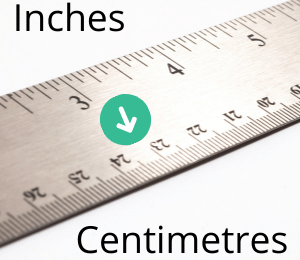Spanish Verb Seguir Conjugation
Seguir Conjugation: Sometimes the only way to arrive somewhere or to complete a task is to follow someone. Whether it be a travel guide or an online DIY personality, there are lots of people we can follow to get something done.
Ever played follow the leader as a child? The word for ‘to follow’ in Spanish is ”seguir”. In this lesson, you will learn how to conjugate ”seguir” in the present and preterite tenses. You will also see examples of how to use the verb.

Lupe and María are both starting new careers. There is a lot to learn and a lot of instructions to follow. Let’s listen in as they talk about their experiences.
María: En mi trabaja nuevo, siempre sigo las instrucciones de mi gerente. (At my new job, I always follow my manager’s instructions.) The verb seguir (say-GEAR) means ‘to follow’ in Spanish. It can also mean ‘to continue’. In this lesson you will see how to conjugate seguir in the present and preterite tenses.
Conjugation Of Seguir\Seguir Conjugation Chart
| Present | Preterite | Imperfect | Conditional | Future | |
| yo |
sigo
|
seguí
|
seguía
|
seguiría
|
seguiré
|
| tú |
sigues
|
seguiste
|
seguías
|
seguirías
|
seguirás
|
| él/ella/Ud. |
sigue
|
siguió
|
seguía
|
seguiría
|
seguirá
|
| nosotros |
seguimos
|
seguimos
|
seguíamos
|
seguiríamos
|
seguiremos
|
| vosotros |
seguís
|
seguisteis
|
seguíais
|
seguiríais
|
seguiréis
|
| ellos/ellas/Uds. |
siguen
|
siguieron
|
seguían
|
seguirían
|
seguirán
|
| Present | Imperfect | Imperfect 2 | Future | |
| yo |
siga
|
siguiera
|
siguiese
|
siguiere
|
| tú |
sigas
|
siguieras
|
siguieses
|
siguieres
|
| él/ella/Ud. |
siga
|
siguiera
|
siguiese
|
siguiere
|
| nosotros |
sigamos
|
siguiéramos
|
siguiésemos
|
siguiéremos
|
| vosotros |
sigáis
|
siguierais
|
siguieseis
|
siguiereis
|
| ellos/ellas/Uds. |
sigan
|
siguieran
|
siguiesen
|
siguieren
|
| Affirmative | Negative | |
| yo |
–
|
–
|
| tú |
sigue
|
no sigas
|
| Ud. |
siga
|
no siga
|
| nosotros |
sigamos
|
no sigamos
|
| vosotros |
seguid
|
no sigáis
|
| Uds. |
sigan
|
no sigan
|
| Present | Preterite | Imperfect | Conditional | Future | |
| yo |
estoy siguiendo
|
estuve siguiendo
|
estaba siguiendo
|
estaría siguiendo
|
estaré siguiendo
|
| tú |
estás siguiendo
|
estuviste siguiendo
|
estabas siguiendo
|
estarías siguiendo
|
estarás siguiendo
|
| él/ella/Ud. |
está siguiendo
|
estuvo siguiendo
|
estaba siguiendo
|
estaría siguiendo
|
estará siguiendo
|
| nosotros |
estamos siguiendo
|
estuvimos siguiendo
|
estábamos siguiendo
|
estaríamos siguiendo
|
estaremos siguiendo
|
| vosotros |
estáis siguiendo
|
estuvisteis siguiendo
|
estabais siguiendo
|
estaríais siguiendo
|
estaréis siguiendo
|
| ellos/ellas/Uds. |
están siguiendo
|
estuvieron siguiendo
|
estaban siguiendo
|
estarían siguiendo
|
estarán siguiendo
|
| Present | Preterite | Past | Conditional | Future | |
| yo |
he seguido
|
hube seguido
|
había seguido
|
habría seguido
|
habré seguido
|
| tú |
has seguido
|
hubiste seguido
|
habías seguido
|
habrías seguido
|
habrás seguido
|
| él/ella/Ud. |
ha seguido
|
hubo seguido
|
había seguido
|
habría seguido
|
habrá seguido
|
| nosotros |
hemos seguido
|
hubimos seguido
|
habíamos seguido
|
habríamos seguido
|
habremos seguido
|
| vosotros |
habéis seguido
|
hubisteis seguido
|
habíais seguido
|
habríais seguido
|
habréis seguido
|
| ellos/ellas/Uds. |
han seguido
|
hubieron seguido
|
habían seguido
|
habrían seguido
|
habrán seguido
|
| Present | Past | Future | |
| yo |
haya seguido
|
hubiera seguido
|
hubiere seguido
|
| tú |
hayas seguido
|
hubieras seguido
|
hubieres seguido
|
| él/ella/Ud. |
haya seguido
|
hubiera seguido
|
hubiere seguido
|
| nosotros |
hayamos seguido
|
hubiéramos seguido
|
hubiéremos seguido
|
| vosotros |
hayáis seguido
|
hubierais seguido
|
hubiereis seguido
|
| ellos/ellas/Uds. |
hayan seguido
|
hubieran seguido
|
hubieren seguido
|
Seguir Conjugation Preterite
The preterite tense is used to talk about things that happened in the immediate past. The verb seguir is mostly regular in the preterite tense. However, for the third-person singular and plural, there is an ‘e’ to ‘i’ shift.
| VERB: seguir (say-GEAR) – to follow/continue |
|---|
| Subject Pronoun |
Preterite Tense | Pronunciation | Translation |
|---|---|---|---|
| yo | seguí | seh-GEE | I followed/continued |
| tú | seguiste | seh-GEES-tay | You (informal) followed/continued |
| él, ella, usted |
siguió | see-gee-OH | He, she, you (formal) followed/continued |
| nosotros nosotras |
seguimos | seh-GHEE-mose | We followed/continued |
| vosotros vosotras |
seguisteis | seh-ghee-STAY-ees | You (plural, informal) followed/continued |
| ellos, ellas, ustedes |
siguieron | see-ghee-EH-rone | They (male, female), you (plural, informal) followed/continued |
What is the stem change for seguir?
| Present | Preterite | |
|---|---|---|
| tú | has seguido | hubiste seguido |
| él/ella/Ud. | ha seguido | hubo seguido |
| nosotros | hemos seguido | hubimos seguido |
| vosotros | habéis seguido | hubisteis seguido |
Does seguir stem change in the preterite?
-ar and -er verbs that change their stem in the present tense do not change in the preterite. They are conjugated just like other regular preterite verbs. -ir verbs that change their stem in the present tense do change in the preterite, but in a different way.
Read Also: Querer Conditional Conjugation
What are the four types of stem-changing verbs?
- E changes to IE. QUERER – to want. yo. quiero. nosotros. queremos. tú quieres. vosotros. queréis. él. quiere. ellos. …
- O changes to UE. PODER – can, to be able to. yo. puedo. nosotros. podemos. tú puedes. vosotros. podéis. él. puede. ellos. …
- E changes to I. REPETIR – to repeat. yo. repito. nosotros. repetimos. tú repites. vosotros. repetís. él. repite.
Learn More About other Conjugation. Go check out Oir Past Tense Conjugation
Seguir Conjugation Subjunctive
| inglés | yo | tú | él/ella/usted | nosotros/-as | vosotros/-as | ellos/ellas/ustedes | |
|---|---|---|---|---|---|---|---|
| Present | I follow, am following | siga | sigas | siga | sigamos | sigáis | sigan |
| Present Perfect | I have followed, followed | haya seguido | hayas seguido | haya seguido | hayamos seguido | hayáis seguido | hayan seguido |
| Imperfect | I followed, was following | siguiera
OR
siguiese |
siguieras
OR
siguieses |
siguiera
OR
siguiese |
siguiéramos
OR
siguiésemos |
siguierais
OR
siguieseis |
siguieran
OR
siguiesen. |
| Past Perfect – Pluperfect | I had followed | hubiera seguido
OR
hubiese seguido |
hubieras seguido
OR
hubieses seguido |
hubiera seguido
OR
hubiese seguido |
hubiéramos seguido
OR
hubiésemos seguido |
hubierais seguido
OR
hubieseis seguido |
hubieran seguido
OR
hubiesen seguido. |
| Future | I will follow | siguiere | siguieres | siguiere | siguiéremos | siguiereis | siguieren |
| Future Perfect | I will have followed | hubiere seguido | hubieres seguido | hubiere seguido | hubiéremos seguido | hubiereis seguido | hubieren seguido |
Read More: How To Use Sohcahtoa?





